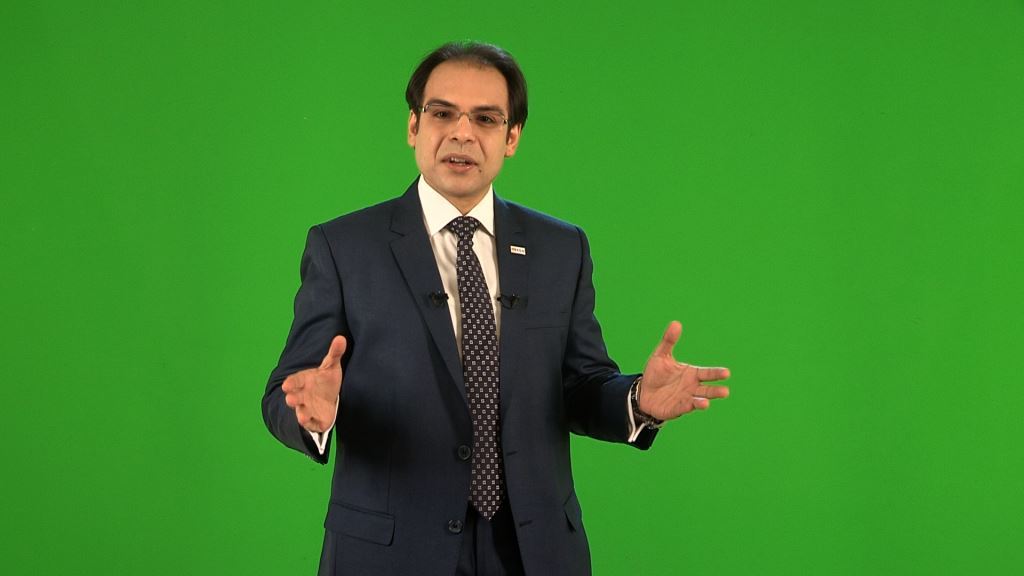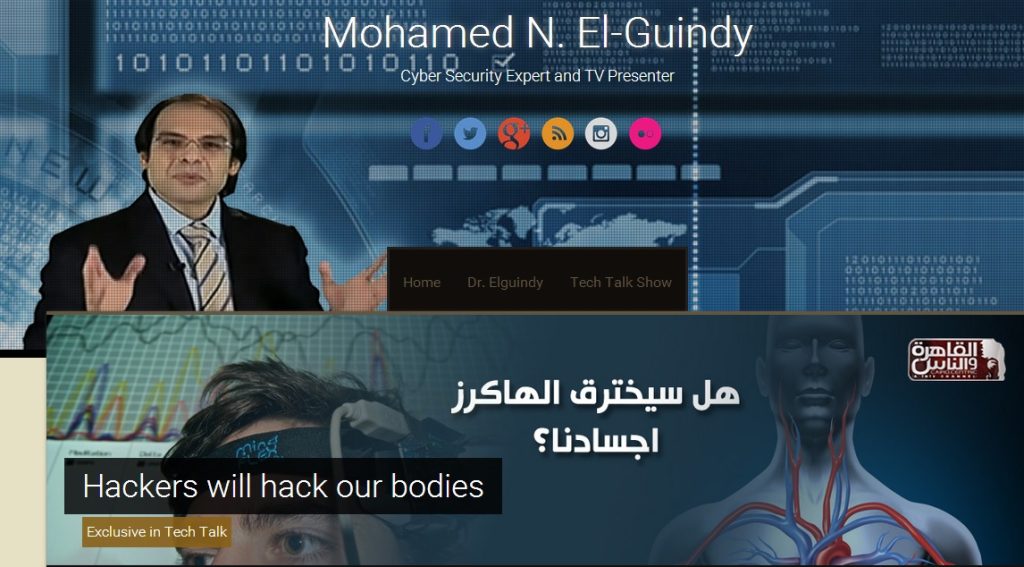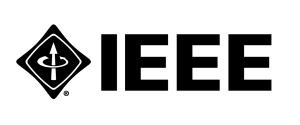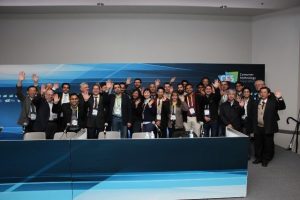Cyber security expert and host of a television show? It is not every day that we come across an IEEE volunteer involved in these two distinct fields. Dr. El Guindy is a frequent blogger on Middle East cyber security issues, human rights, digital surveillance and cyber threats. In addition, he publishes whitepapers on critical issues related to technology and Middle East. Furthermore, he is the author of variety of books, study guides and IT courses in English and Arabic which are approved by international reputable organizations. Dr. El Guindy was involved in developing Arabic booklets for an Internet Awareness Project “Saleem Net” in Saudi Arabia. Mohamed is an authority in the filed of cybercrime study in the Middle East and his contributions cited in UN reports and university research around the world.
As the Editor-in-Chief of GOLDRush, I have had the pleasure of interviewing Dr. Mohamed N. El-Guindy and would like to share this with all of our readers.

Mr. Mohamed El-Guindy in front of the green screen during a shoot of “Tech-Talk”
Mr El-Guindy, thank you for taking the time to take this interview on such short notice. Tell us a little about yourself and your work history.
My main job is cybersecurity consultancy and training. I started my career as a computer programmer in the 1990’s and developed my skill set in the IT stream during my study. Over my career span, I have worked in several organizations as a systems engineer, IT trainer, IT manager and now represent the Information Systems Security Association in Egypt (ISSA International). In addition to delivering consultancy tasks to government and private sectors in the Middle East, my cybersecurity career took off as a result of my involvement with international organizations such as ISSA, BCS and IEEE. I’m also active in the cybersecurity research domain at national and international levels and have participated in workshops related to drafting cybersecurity laws and regulation.
How did you get involved with the IEEE and what benefits has this had on your career?
IEEE is the largest and one of the oldest international organizations for engineering and technology, and as a result it was very attractive for me to be a part of it. I started by joining the IEEE Computer Society and then joined IEEE at large. My involvement with the IEEE benefited my career and study. I have always been keen to read the specialized journals published by IEEE in the field of Computer Science, Engineering and Technology. This has allowed me to stay on top of the latest developments in my field. In addition, my CPD is easily updated through the IEEE Computer Society learning portal. I am proud of being an IEEE member for 6 years. Furthermore, I developed IT training courses that are approved by IEEE which is one of my greatest achievements.

Tech Talk in Egypt
You are an assessor in a leading IT body, BCS. Can you tell us what your typical day will consist of, what challenges do you face and what have you learnt that you could share with our readers?
BCS is a respected IT organization that has taught me much of what I know and helped me enormously in advancing my career. I successfully earned the Chartered IT Professional, Chartered Engineer, and now Fellow of BCS. My passion to advance my knowledge and recognition in the field encouraged me to join the BCS assessors’ training I am now an approved BCS assessor. My volunteering job with BCS involves assessing both chartered and incorporated engineers looking to join the Engineering Council-UK through BCS. It is a challenging job to assess other professionals in the field. It requires assessors to understand the details of the SFIA (Skills Framework for the Information Age) and possesses interdisciplinary expertise. My affiliation with BCS was instrumental in receiving the Registered Scientist Award through the Institute of Science and Technology in the UK. Indeed, I encourage young engineers and technologists to join international organizations such as the IEEE to advance their knowledge and expertise in an ever-changing field.
You are a presenter on a Technology TV Show called “Tech Talk” on (Cairo Centric), the leading TV Channel in the Middle East. Tell us more about the show and how you got into it? What do you normally present on?
My Tech Show focuses on Technology, Science and Engineering. At times I am required to talk about politics, economics and history. Connecting these disciplines to technology and science can be a challenging task, but is ultimately an unavoidable part of my job. Tech Talk is the first TV program in the Middle East to raise the awareness of technology and its effects on society. The program episodes provide variety of technical topics in forms of investigative journalism and thriller. From digital espionage and internet surveillance to 3D printing and reverse engineering the human brain. From civil society to military applications, technology is affecting our everyday lives and became part of social, political and economic scene. The main objective of the program is to deliver controversial technical or scientific topics in an exciting and entertaining presentation to our audience. I really believe that we are moving from an interdisciplinary to an transdisciplinary stage in science and technology. I got into the media industry when I met the right people who believed in the Idea of a technology show, which is not easy in Middle East. Mr. Tarek Nour, the owner of Cairo Centric satellite channel was instrumental and helped me a lot in this matter. There are many others who work behind the scenes, especially in editing and shooting of the show that must also be thanked.
What advice can you provide to IEEE Young Professionals seeking to make their mark in the world of engineering and technology?
Rather than advice, I am giving an open invitation to anyone working in engineering and technology related careers. I invite my fellow young professionals to be active in research, get involved in volunteering jobs and join international organizations that will help advance their careers and expertise. Finally, I would like to tell them that today’s economy depends on their expertise and they are shaping the future with their careers and study. In this technological era, Young Professionals need to be extraordinary men. Elbert Hubbard once said “One machine can do the work of fifty ordinary men. No machine can do the work of one extraordinary man.”
To find out more about Dr. El-Guindy and his great work please click here
Tech Talk videos with Dr. El-Guindy can be found on YouTube
Article contributed by Dr. Eddie Custovic, GOLDRush Editor-in-Chief





